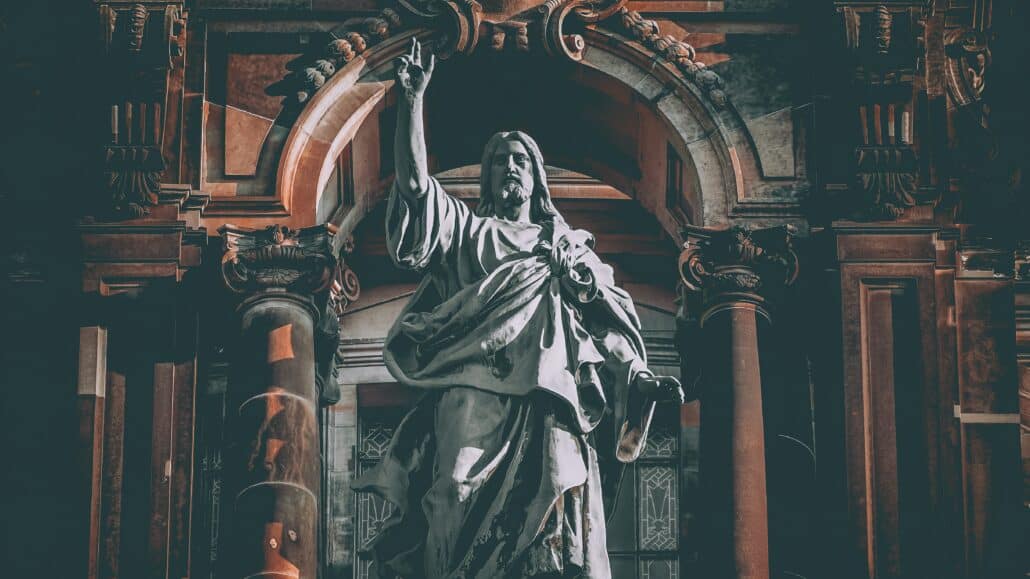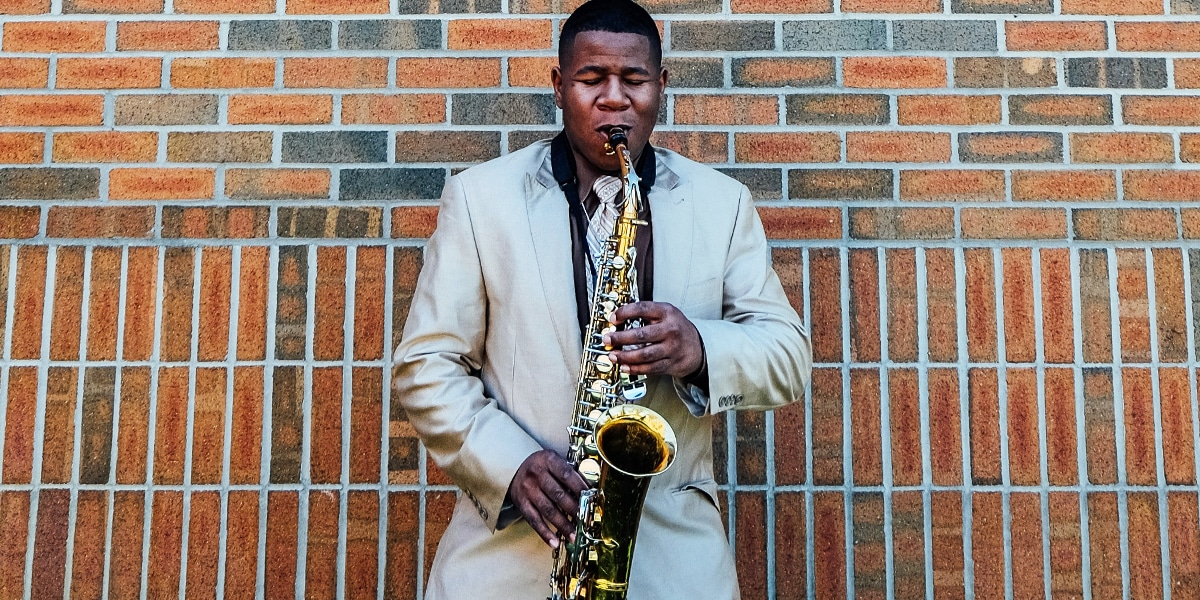Was Jesus’s public ministry prompted solely by his desire to get all of us into heaven—or did he have something more in mind for his followers? Having studied and taught Scripture for over forty-five years, I’m convinced Jesus is as interested in our lives now as he is about where we’re going to spend eternity. In fact, he links the two.
This conviction was powerfully reinforced by Christopher Chabris and Daniel Simons’s book, The Invisible Gorilla (Crown Publishing Group).
Had this book been written 2,000 years ago, I think Jesus would certainly have made its first chapter required reading for all his followers. It may help readers to understand the faith and teachings of Jesus more than any book besides Scripture itself.
Technically, the opening chapter has nothing directly to do with faith. It’s simply a scientific exploration of a basic human question: What do we actually see when we’re looking at something immediately in front of us?
The two psychologist-authors discovered that we see only the object on which our eyes actually focus. By nature, we miss much of what else is directly within our field of vision. No one sees everything. Those who presume they can or do are badly mistaken. For those who doubt that statement, the authors offer many individuals who never saw what to others was obvious.
More than twelve years ago, Chabris and Simons conducted an experiment (available on YouTube) in which they asked people to count the number of passes made by a specific basketball team. As the players were throwing the ball back and forth, a young girl in a gorilla outfit appeared, threading her way among the players, in full view of anyone watching the action.
After the passes stopped, the viewers were asked: How many passes did their team make? And did you notice the gorilla walking among the players while they were making the passes? Almost everyone gave the correct number of passes; but more than half never saw the gorilla! This book has spoken to so many people and situations that it has already been translated into fourteen languages with another four in progress.
Surprising as the authors’ findings are, they have a great deal to do with our faith.
Kingdom of God Includes Now
Our first three Gospel writers tell us Jesus began his public ministry with the same statement: “The kingdom of God is at hand. Repent, and believe in the gospel” (Mk 1:15b, with parallels in Mt 3:2 and Lk 4:43). Presuming Jesus was an itinerant preacher, scholars believe he somehow wove this statement into every talk or sermon he delivered. We might describe it as an essential part of his “stump speech.” The insight contained in this proclamation seems to have impelled him to shutter his carpenter shop and begin traveling to synagogues throughout Galilee and Judea, sharing this message with everyone who would listen.
An important biblical concept, the “kingdom of God” (or Matthew’s parallel “kingdom of heaven”) doesn’t refer to the place where we plan to spend eternity. Rather, it’s the term Jesus and others used for how God works in our lives right now, long before we step through those pearly gates.
Although most of us believe that Jesus came primarily to get us into heaven eventually, that hardly describes how he saw his ministry. We need only to turn to Mark 10:17-31 to surface his intentions.
A rich, young man comes up to Jesus and asks, “Good teacher, what must I do to inherit eternal life?” In popular theological terms, the man wants to know what he must do to get into heaven.
Jesus immediately checks the man’s record on keeping the commandments. When he responds that he’s observed them all “from my youth,” we presume his worries are over. After he dies, he can have his mail forwarded to heaven.
But before he walks away, confident that his commandment-keeping lifestyle guarantees him eternal life, Jesus adds another option to the mix. He invites this good man, long before he dies, to enter the kingdom of God: to experience God working in his daily life. There’s only one prerequisite: He must give up his wealth, distribute his money to the poor, and follow Jesus.
The rich man finds this option simply too demanding. Content with the assurance he will one day get into heaven, he turns away sadly and walks away.
His refusal prompts Jesus to muse, “It is easier for a camel to pass through the eye of a needle than for one who is rich to enter the kingdom of God” (25). It’s not very complicated to figure out why this is so.
Normally, a wealthy person’s eyes are focused on the wrong thing. We can only experience God working in our lives by zeroing in on the people and situations that we easily overlook. Though God’s kingdom is within our field of vision, we frequently fail to see it because we’re zeroing in on something else: in this case, acquiring wealth.
Sharpening Our Focus
That’s why repentance is an essential part of surfacing God’s kingdom. The Greek word used in Scripture (metanoia) means more than simply saying we’re sorry for our sins, even though we’re fairly certain we’ll commit them again. The term implies that we engage in a complete change of our value system. In Chabris and Simons’s terminology, that means we start focusing on the things and people we have previously ignored.
We hear Jesus demand this change at the very beginning of Mark’s Gospel. Immediately after he delivers his proclamation about God’s kingdom, Jesus calls his first four followers, assuring the four fishermen, “I will make you fishers of men” (1:17b). In other words, “I’m changing the focus of your life. People, not fish, will now be your point of concentration.” They will be seeing things they’ve never seen before.
More than ten years before Mark composed his Gospel, Paul shared his own experience of a change in focus with his community in Philippi.
“Whatever gains I had, these I have come to consider a loss because of Christ . . . For his sake I have accepted the loss of all things and I consider them so much rubbish, that I may gain Christ and be found in him . . . ” (3:7, 9). Those who knew Saul before his Damascus road conversion are amazed at what he now sees, things that many of them had never noticed.
Our four Gospel writers constantly show how Jesus encourages his followers to see new things. John has him directly address the issue in his well-known chapter 9 story of the man born blind. After accepting the now-sighted man’s profession of faith, Jesus says, “I came into this world for judgment, so that those who do not see might see, and those who do see might become blind” (39). When his enemies protest, “Surely we are not also blind, are we?” Jesus snaps back, “If you were blind, you would have no sin; but now you are saying, ‘We see,’ so your sin remains” (40-41).
For John’s Jesus, sin basically consists of refusing to see what Jesus sees. Those who are content being blind will, like the rich, young man, experience God only when they step into eternity. What as waste of life!
Where Is Jesus Working?
Matthew’s entire Sermon on the Mount (5–7) is simply an early Christian lesson on refocusing. It begins with the oft-quoted but rarely practiced beatitudes, an ingenious way of reminding us that Jesus’s followers habitually see reality differently from those who do not follow him. It’s precisely in the midst of situations that most people try to avoid (for example, poverty, sorrow, frustration, and persecution) that we can recognize the risen Jesus working in our everyday lives.
Jesus constantly teaches his followers how to surface this kingdom of heaven. They must look far beyond rules and regulations; rather, they concentrate on their relationships with God and one another. Notice how often Jesus says, “You have heard it said. . . but I tell you. . .” (five times in chapter 5). In many situations, even if we keep all the rules, we can still hurt others by how we think about them. Jesus continually calls us to notice things we missed before our metanoia.
That’s why it’s no accident that the evangelist records Jesus as saying early in the Sermon on the Mount, “I tell you, unless your righteousness surpasses that of the scribes and Pharisees, you will not enter into the kingdom of heaven” (5:20). In other words, “If you go through life simply focusing on laws, you’ll never be able to see what God sees.”
The late Carroll Stuhlmueller, CP, often reminded his students that prophetic reformers of the faith rarely bring up anything new. Their ministry simply revolves around taking elements that institutional religion has relegated to the periphery of our faith and placing them directly in front of our eyes. These demands have always been there; we have simply never noticed them before.
The questions Deutero-Isaiah asks in chapter 40 are classic: “Do you not know? Have you not heard? Was it not foretold you from the beginning? Have you not understood?” (21). No one can accuse Yahweh of not describing how his people need to live. Over the centuries, some have successfully excluded from their field of vision things that dominate a prophet’s field
of vision.
If there’s any doubt about Jesus’s prophetic ministry, Mark has him click off a list similar to Deutero-Isaiah’s in chapter 8. “Do you not yet understand or comprehend? Are your hearts hardened? Do you have eyes and not see, ears and not hear? And do you not remember. . . ?” (17b-18).
It’s precisely because of such religious blindness that Matthew’s Jesus ends chapter 13’s well-known series of parables about the kingdom of heaven with two mini-parables about discovery.
“The kingdom of heaven is like a treasure buried in a field, which a person finds and hides again, and out of joy goes and sells all that he has and buys that field. Again, the kingdom of heaven is like a merchant searching for fine pearls. When he finds a pearl of great price, he goes and sells all that he has and buys it” (44-45).
Seeing with New Eyes
In chapter 12 of Mark, Jesus draws hisfollowers’ attention to something many Christians still overlook. When priests and ministers encourage parishioners to increase their weekly donations, they often employ the example of the widow who donates her last coins to the upkeep of the Jerusalem Temple (41-44). There’s just one problem. Those who use this poor, nameless woman this way aren’t seeing what Jesus sees. Because of our vested interest in raising money for religious purposes, we overlook the obvious.
Remember what precedes this passage! Jesus warns his disciples, “Beware of the scribes, who like to go around in long robes and accept greetings in the marketplaces, seats of honor in synagogues, and places of honor at banquets. They devour the houses of widows and, as a pretext, recite lengthy prayers. They will receive a very severe condemnation” (38b-40).
Then he quickly presents them with Exhibit A, proving his point about religious leaders devouring the houses of widows. “He sat down opposite the treasury and observed how the crowd put money into the treasury. Many rich people put in large sums. A poor widow also came and put in two small coins worth a few cents. Calling his disciples to himself, he said to them, ‘Amen, I say to you, this poor widow put in more than all the other contributors to the treasury. For they have all contributed from their surplus wealth, but she, from her poverty, has contributed all she had, her whole livelihood’” (41-44).
While most Temple visitors—and casual readers of the Gospel—see only a generous widow willing to go beyond the last mile to make certain this shrine continues to be the glorious site her ancestors envisioned, Jesus sees someone who is being horribly abused by a religious institution. Instead of the institution taking care of her, she’s taking care of it.
People who use this story to increase their collections are asking us to see what isn’t here: Jesus praising her action. He never even hints that she’s doing the right thing by contributing all she has; he simply points out what she’s doing. Given Jesus’s prior comment about unscrupulous religious leaders stealing from the poor and helpless, Jesus’s disciples and Mark’s readers must draw the logical conclusion.
The authors of The Invisible Gorilla assert, “For the human brain, attention is essentially a zero-sum game: If we pay more attention to one place, object, or event, we necessarily pay less attention to others. . . . In essence, trying to eliminate inattentive blindness would be equivalent to asking people to try flying by flapping their arms really rapidly. The structure of the human body doesn’t permit us to fly, just as the structure of the mind doesn’t permit us to consciously perceive everything around us.”
No wonder Jesus is convinced that people focused on acquiring wealth can never see God’s kingdom. Yet Chabris and Simons also observe that even though a huge percentage of automobile drivers never seem to notice motorcycle riders, a majority of motorcycle riders, when driving automobiles, almost always see their counterparts.
On a different but parallel level, Jesus would probably reinforce the finding of Chabris and Simons by stating, “Only when you imitate me and become one with those on the lower rungs of the social ladder, will you begin to notice others in that same position.” Jesus’s story about the rich man and Lazarus (Lk 16:19-31) recalls two things: 1) it is very easy not to see someone in need, and 2) our decisions now affect eternity.
Jesus’s story about the people condemned at the Last Judgment for not feeding the hungry, clothing the naked, and performing other works of compassion (Mt 25:31-46) reinforces the same two points.
We can never forget that Paul once reminded his Philippian community, “[Jesus] emptied himself, taking the form of a slave, coming in human likeness; and found human in appearance, he humbled himself, becoming obedient to death, even death on a cross” (2:7-8). Of course, we can’t overlook that Paul begins this reminder by remarking, “Have among yourselves the same attitude that is also yours in Christ Jesus” (2:5).
Jesus expects only one thing of his followers: to see what he sees. Those who do so become “other Christs.”








